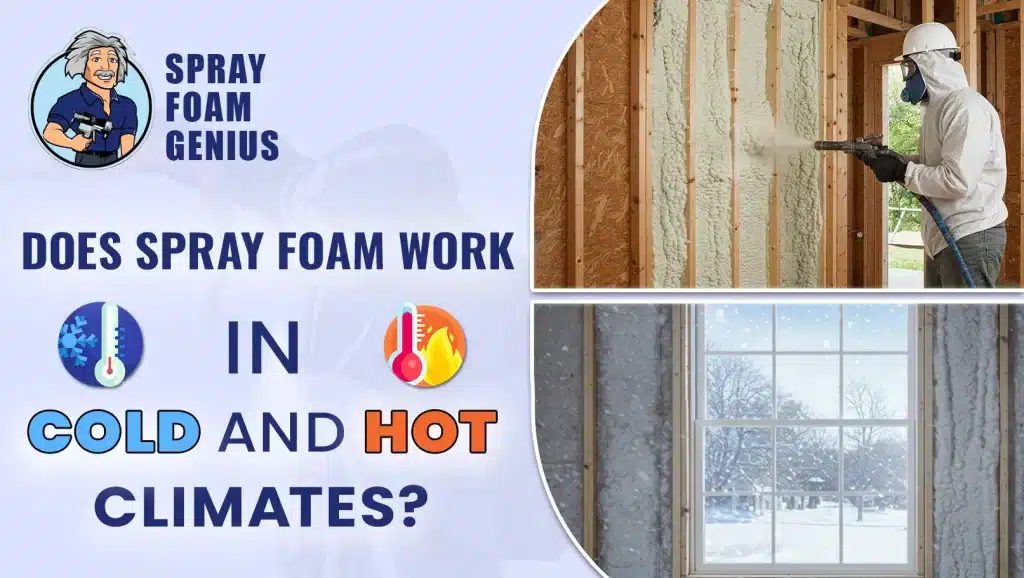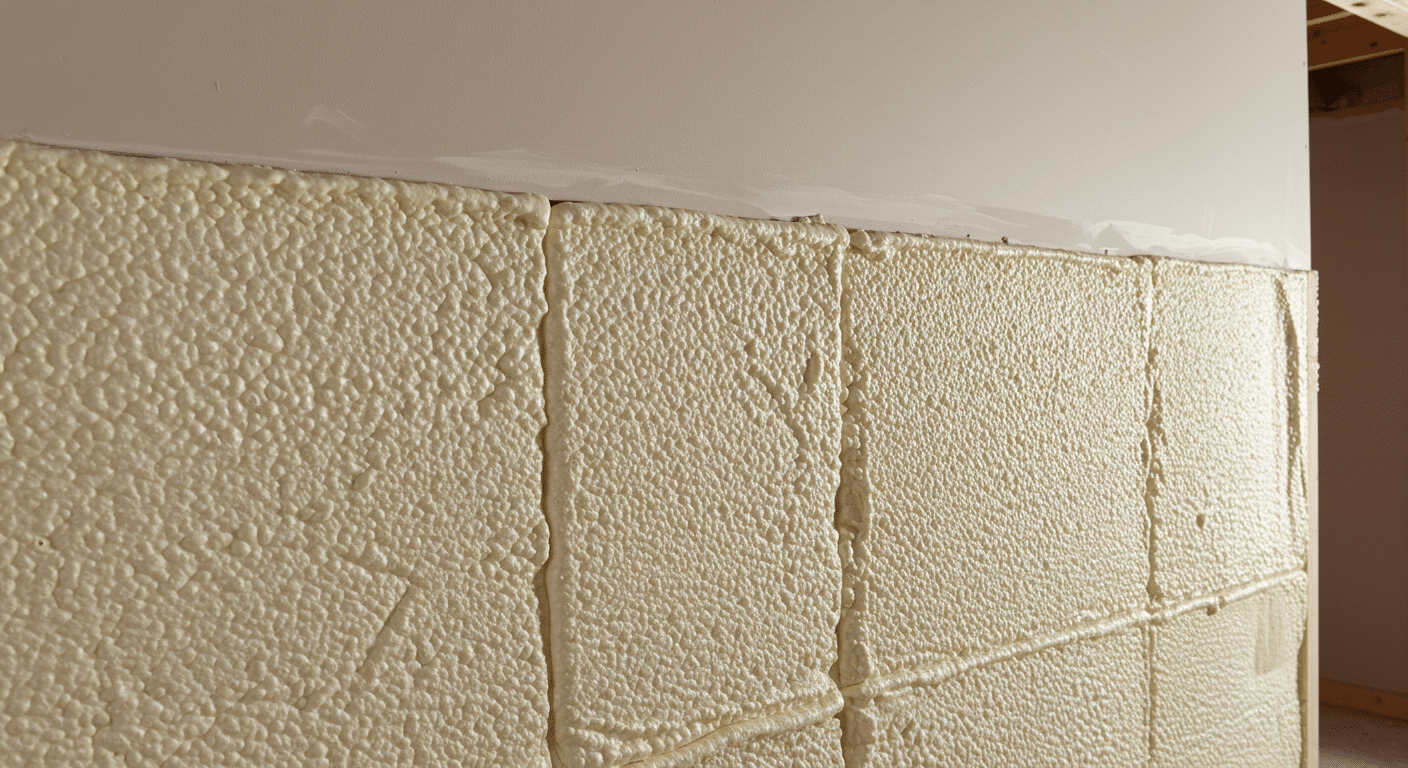
Spray foam insulation works well in both hot and cold climates because it seals air leaks and has a high R-value, meaning it’s great at keeping heat in or out.
Closed-cell spray foam is the best choice for extreme temperatures—it keeps warmth inside during winter and blocks heat in the summer, plus it adds a moisture barrier and strengthens walls.
Open-cell foam is softer and more breathable, making it ideal for mild or moderate climates. When installed correctly, spray foam helps maintain comfortable indoor temperatures all year long and lowers your heating and cooling bills..
Key Factors Affecting Spray Foam Performance by Climate
| Factor | Cold Climates | Hot Climates |
| Foam Type Preference | Closed-cell (higher R-value, barrier) | Closed-cell (thermal and moisture seal) |
| Moisture Resistance | Critical for preventing condensation | Important for humidity control |
| Air Sealing Importance | Prevents drafts and heat loss | Blocks hot air infiltration |
| Vapor Control | Needed to manage condensation | Needed to reduce humidity load |
| HVAC Impact | Reduces heating demand | Lowers cooling requirements |
Seasonal Performance: Pros and Cons
Pros
- High R-value provides excellent thermal insulation year-round.
- Air sealing reduces drafts, heat loss, and energy bills.
- Moisture barrier (closed-cell) protects against condensation and mold.
- Durable and effective in extreme temperatures.
Cons
- Higher upfront cost than traditional insulation.
- Open-cell foam may be less suitable for extreme climates.
- Incorrect installation can lead to reduced performance or moisture issues.
Closed-Cell vs. Open-Cell Spray Foam by Climate

| Feature/Factor | Closed-Cell Spray Foam | Open-Cell Spray Foam |
| Best for Climates | Extreme cold and hot climates | Mild to moderate climates |
| R-Value (per inch) | Up to R-7 | Around R-3.5 |
| Moisture Resistance | Excellent (acts as a vapor barrier) | Low (vapor-permeable) |
| Air Sealing | Superior | Good |
| Structural Strength | Adds rigidity to walls and roofs | Soft, flexible—no structural support |
| Mold Prevention | Highly effective due to moisture control | Less effective in humid or wet conditions |
| Cost | Higher upfront cost | Lower cost |
| Ideal Applications | Exterior walls, roofs, basements, crawl spaces | Attics, interior walls, soundproofing |
Installation Considerations by Season
In cold climates, winter installs require temperature-controlled environments or heaters to ensure proper foam expansion and adhesion. Summer installations in hot climates should account for humidity, which can affect curing time and performance. Regardless of season, experienced contractors should evaluate building envelope needs, vapor barrier placement, and ventilation to optimize foam performance. Choosing the right type and ensuring proper application is key to effective seasonal insulation.
Spencer is a Google ranking expert and SEO consultant who has helped businesses in the spray foam marketing industry achieve their online marketing goals. Spray Foam Genius Marketing has a proven track record of success, having achieved some impressive results for his clients.

